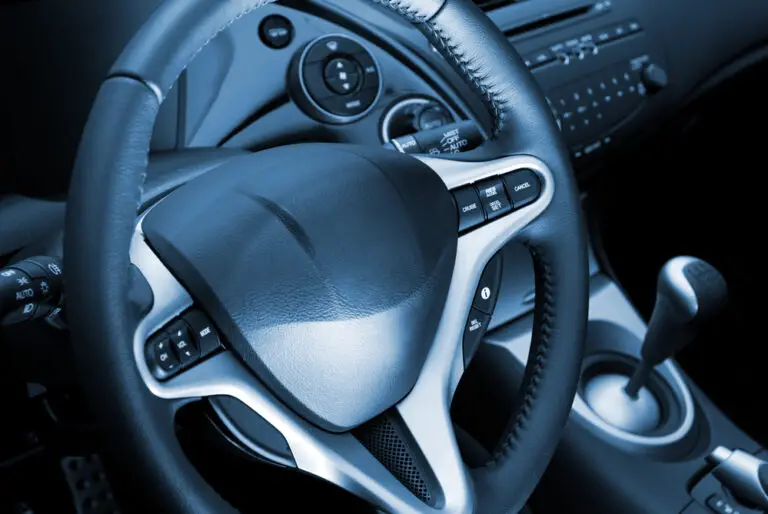Alabama Car Seat Laws 2024 (Rear, Forward & Booster)

Under Alabama car seat laws, all children under 15 years of age must be secured in an appropriate car seat or a seat belt.
The person transporting the child is responsible for ensuring that they are properly secured. A violation of the law carries a penalty of $25.
Disclaimer: This content does not constitute legal advice. It is solely for informational purposes. Always check the original source of the law for the latest version.
- Rear-Facing
- Forward-Facing
- Booster
- Front Seat
- Seat Belt
- Taxi Seat
- Ridesharing Seat
- Replacement
- Alone in Car
- Choosing a Seat
- Installation Help
Alabama Car Seat Laws
Alabama Rear-Facing Car Seat Law
According to the rear-facing car seat law in Alabama, an infant should be placed in a rear-facing seat till they are at least one year old or weigh 20 pounds (regardless of age). (1) The seat should meet federal safety standards and be installed as per the manufacturer’s instructions.
Violating Alabama rear-facing child seat law carries a fine of $25. The trial judge can dismiss the charges if you can show that you have acquired a proper car seat. However, the Alabama Department of Public Safety will assess points to your records.
The rear-facing car seat age in Alabama is 1 year. But the American Academy of Pediatrics (AAP) recommends that children use a rear-facing seat for as long as possible according to the seat’s upper height or weight limits.
Age: Newborn to 1 year
Weight: At least 20 pounds
Penalty: $25
Alabama Forward-Facing Car Seat Law
According to the forward-facing car seat law in Alabama, children between the ages of 1 to 5 years or weighing at least 40 pounds should ride in a forward-facing seat. (1)
The forward-facing car seat age in Alabama is 1 to 5 years. But the Alabama Department of Public Health recommends that children ride in a forward-facing seat with a harness till
they reach the maximum height and weight limits of the seat as prescribed by the manufacturer. (2)
A violation of Alabama forward-facing child seat law carries a penalty of $25. The person transporting the child will be held responsible.
The trial judge can dismiss the charges if you can prove that you have acquired a forward-facing seat. Nevertheless, points will be assessed to your driving record.
Age: 1 to 5 years
Weight: At least 40 pounds
Penalty: $25
Alabama Booster Seat Law
According to the child booster seat law in Alabama, children should ride in booster seats till they are 6 years old. (1) Depending on your vehicle seat, it can be a high-back or a backless booster seat.
Though the booster seat age in Alabama is 6 years, the National Highway Traffic Safety Administration (NHTSA) recommends moving your child to a booster seat only after they have exceeded the height and weight limits of their forward-facing seat.
They should continue riding in a booster seat till they are big enough for the seat belt to fit them properly (usually when they are 4’9” tall).
There is a fine of $25 for not following Alabama booster seat requirements. You will be held responsible for transporting your child without a proper car seat.
Age: 5 to 6 years
Penalty: $25
Alabama Child Front Seat Law
There is no express child front seat law in Alabama. However, the AAP recommends that children sit in the backseat till they are 13 years old. This is because the rear seat is the safest for kids. The Alabama Department of Public Health also endorses this view. (2)
If your vehicle does not have a rear seat or it is not possible for the child to ride in the backseat, you can put them in the front seat. However, you must ensure that they are restrained in a car seat that is appropriate for their height and weight as per the requirements of Alabama car seat regulations. The front seat airbag must be deactivated.
Since the front seat age in Alabama is unclear, you should follow the recommendations of the AAP and the Department of Public Health.
Age: 13+ years (recommended)
Alabama Child Seat Belt Law
According to the child seat belt law in Alabama, all children between the ages of 6 to 15 years must wear an adult safety belt. (1) These requirements are to be followed regardless of whether they are riding in the front seat or the backseat.
A seat belt fits properly when the lap belt lays across the upper thighs and the shoulder belt fits across the chest. Not wearing a seat belt is a violation of Alabama children’s seat belt law and carries a fine of $25.
Seat belt rules in Alabama do not apply to occupants who cannot wear a seat belt due to medical reasons and carry a written statement from a licensed physician to that effect. (3) They also do not apply when traveling in a vehicle manufactured before 1965.
Age: Until 15 years
Penalty: $25
Alabama Taxi Child Seat Law
According to the taxi child seat law in Alabama, taxis are exempt from child seat requirements in Alabama.
Alabama state law requires a child passenger who is 6 years old or younger to be secured in an appropriate child restraint. (1) It can be a rear-facing, forward-facing seat or a booster seat depending on the child. However, the taxi driver is not responsible for providing a taxi child seat in Alabama.
Thus, as parents and caregivers, it is best if you arrange an appropriate car seat before traveling with your child in a taxi. Otherwise, you may be penalized $25 for violating the law.
You can refer to the car seat manual and also ask the cab driver for help with proper installation of the seat.
Alabama Ridesharing Child Seat Law
The ridesharing child seat law in Alabama is unclear.
Car seat laws in Alabama require all children till the age of 6 years to be secured in a car seat that is appropriate for their size. (1) The person transporting them is responsible for ensuring that they are restrained.
However, the law does not specify if it applies to ridesharing services such as Uber and Lyft. Neither does it state who should provide a child seat.
In such a case, either the parents/caregivers or the driver can provide a car seat. For infants, it means a rear-facing car seat.
For toddlers and young children, a forward-facing seat with a harness or a booster seat is required. The parent or the driver can install the car seat in the vehicle as per the manufacturer’s instructions.
Alabama Child Seat Replacement Law
There is no specific child seat replacement law in Alabama. But if your car is involved in a moderate or severe accident in Alabama, you must replace the child safety seat.
The car seat or booster seat that has been involved in a crash may have defects not visible to the eye. Therefore, it is important to replace them after a moderate or severe crash.
However, if your vehicle suffered a low-impact accident, there is no need to automatically replace the car seat. A low-impact crash is one that satisfies all five conditions prescribed by the NHTSA.
In addition to child seat replacement after an accident, you must also replace it if it has been recalled, is more than 6 years old or your child has outgrown it.
Leaving Child in the Car in Alabama
According to the law on leaving a child in a vehicle in Alabama, licensed day care centers and any other child care facility must ensure that a child under the age of 7 years is not left alone in a vehicle. (3)
The person associated with such facility and responsible for leaving a child in the car in Alabama will be fined a minimum $2000.
This provision, called the Amiyah White Act, only applies to licensed child care service providers. However, leaving a child unattended in a vehicle is extremely dangerous.
The most common danger is heat stroke. Temperature inside the vehicle can rise rapidly. Since children’s bodies heat up faster than adults, they are at a great risk of suffering a heat stroke.
Other risks include setting the car in motion, getting strangled by seat belts or power windows or having some other in-car accident.
Choosing a Child Car Seat in Alabama
When choosing a car seat in Alabama, ensure that it complies with Alabama child seat laws. You can refer to the guidelines of the Alabama Department of Public Health. For infants under the age of 2, a rear-facing seat is the best car seat to use in Alabama. For children under the age of 5 years, you should use a forward-facing car seat.
Once your child outgrows their forward-facing seat, they should ride in a belt-positioning booster seat. The best booster seat to use in Alabama is the one that allows the seat belt to fit firmly across your child’s shoulders and lap.
Car Seat Installation Help in Alabama
Installing child passenger safety seats in Alabama can be a complex task. You need to read through the manuals of the car seat and your vehicle. Parents often end up incorrectly installing the seat. This is unsafe for your child.
To help you with safe installation, there are many stations across Alabama with certified Child Passenger Safety (CPS) technicians. They can also inspect your seats and also give you more information on car seat safety. Some of these fitting stations are:
The Alabama Department of Public Health has a complete list of stations.
Alabama Car Seat Safety Resources
- Alabama Department of Public Health: The official website of the Department contains vital information about the law as well as best practices for car seats and booster seats.
- Children’s of Alabama: One of the leading children’s hospitals in the country, it has been providing medical care to children since 1911. It contains comprehensive information about child passenger safety. This includes best practices for the different types of car seats, safety tips for parents and transportation of kids with special needs.
- Safe Kids Alabama: The Alabama coalition of Safe Kids conducts car seat checks, safety workshops and also helps families with valuable resources to prevent childhood injuries.
FAQ
How long should a child ride in a rear-facing car seat in Alabama?
As per the law, a child should ride in a rear-facing seat till they are 1 year old or weigh at least 20 pounds.
Can you put a rear-facing car seat in the front seat in Alabama?
There is no law in Alabama that prevents you from putting a rear-facing seat in the front seat. But you must deactivate the front seat airbag.
Can you put a rear-facing car seat in the middle rear seat in Alabama?
You can put a rear-facing car seat in the middle rear seat if your vehicle has lower anchors for proper installation of the car seat.
When can a baby face forward in a car seat in Alabama?
A baby can ride in a forward-facing car seat in Alabama when they are between 1 to 5 years old and weigh at least 40 pounds.
How old for a booster seat in Alabama?
A child can ride in a booster seat till they reach 6 years of age. However, they should continue riding in a booster seat till the set belt fits them properly.
When to use a backless booster seat in Alabama?
You can use a backless booster seat only if your vehicle seat has a head rest and the child’s ears are not higher than the seat back.
When can a child sit in the front seat in Alabama?
There is nothing mentioned in the law. The AAP recommends that children sit in the front seat after they turn 13 years old. Until then, they should ride in the backseat.
When can a child sit in the front seat with a booster in Alabama?
The child can sit in the front seat with a booster but the seat should be pushed as far from the dashboard as possible. The front seat airbag must be deactivated.
When can a child stop using a booster seat in Alabama?
Under the law, a child can stop using a booster seat once they turn 6 years old. But they should ideally stop when they are big enough for the seat belt.
When to switch from 5 point harness to a seat belt in Alabama?
When the child outgrows the height and weight limits of the 5-point harness of a forward-facing seat, they can switch to wearing a seat belt in a booster seat.
When can a child use a regular seat belt in Alabama?
A child older than 6 years can use a regular seat belt. It is recommended that they wear a seat belt once they are 4’9” tall.
Do you need a car seat in a taxi in Alabama?
No, you don’t need a car seat in a taxi in Alabama. The driver will not be responsible for providing a child passenger safety seat.
Do you need a car seat in a Uber in Alabama?
The law is unclear on this issue. But either the caregiver or the driver should provide an appropriate car seat to ensure the child’s safety.
Do you need a car seat in a Lyft in Alabama?
The law is not clear. But either the caregiver or the driver should provide a federally approved and appropriate car seat to ensure the child’s safety.

Rishima Rawat
Rishima Rawat is a lawyer and legal writer with over six years of writing and legal experience. She earned her LLB degree from the West Bengal National University of Juridical Sciences, Kolkata. With a passion for child safety, she’s written extensively about the U.S. car seat laws in ParentingMode. She collaborates with businesses and law firms globally, enhancing their online content. Her insights are also published in legal journals like RGNUL, NLIU, and RMLNLU Law Review. Committed to the cause of education, she has volunteered with IDIA, which helps underprivileged children in India to access legal education. She has also worked with Enhelion Knowledge Ventures, a leading legal ed-tech platform in India that provides students with affordable courses in law. Fluent in English and Hindi with elementary proficiency in Spanish, Rishima combines her legal expertise with a dedication to child safety.






